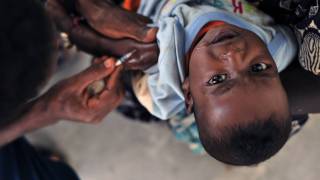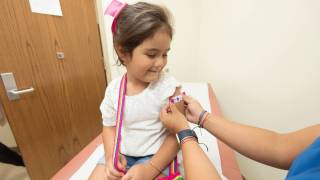Summer Travel Alerts Updated August 11, 2019

As the summer season comes to a close in the Northern Hemisphere, an updated set of Travel Alerts have been issued by the Centers for Disease Control and Prevention (CDC).
CDC issued travel notices are designed to inform travelers about current health risks related to international destinations. These health risks may arise from disease outbreaks or special events that may affect travelers’ health, such as the US Open Tennis Tournament.
On August 26, 2019, over 800,000 individuals from the USA and around the world are expected to gather in New York City for 2-weeks. Many of these tennis fans could be under-vaccinated for infectious diseases, such as measles, mumps or rubella.
The CDC issues different types of notices for international travelers, such as the following Travel Alerts published as of August 11, 2019.
Warning Level 3, Avoid Nonessential Travel
- Venezuela - August 7th
Alert Level 2, Practice Enhanced Precautions
Watch Level 1, Practice Usual Precautions
- Lassa Fever - Nigeria - August 7th
- Hajj - Saudi Arabia - August 7th
- Monkeypox - Nigeria - August 7th
- Cholera - Yemen - August 6th
- Hemorrhagic Fever - Bolivia - July 18th
With many summer vacationers traveling abroad in late summer, the CDC Travelers’ Health Branch published updated advice about which medications and vaccines international travelers should consider before departure.
Some countries may require you to provide proof that you have been vaccinated against yellow fever by presenting an International Certificate of Vaccination (ICV) or Prophylaxis when entering certain countries, says the CDC.
Furthermore, there have been reports of fraudulent ICV activity in various Africa countries, such as Nigeria.
You can find some of the CDC’s most frequently asked travel questions and responses below:
1. What vaccines or medicines should I get before traveling to my destination?
- Use the CDC destination tool to find the vaccines and medications you need for your next trip, and schedule an appointment with a travel medicine specialist at least 1 month before traveling to get recommended or required vaccines and medicines.
2. If I am going on a cruise that will stop in several countries, which vaccines are needed?
- You should be up-to-date on routine vaccines, such as measles-mumps-rubella (MMR), tetanus, and flu shot. Depending on where you’re going and what activities you plan, other vaccines may be recommended.
3. What are the prices of vaccines needed for travel outside the USA?
- Vaccine prices vary by provider and insurance coverage. You should be able to get routine vaccines from your primary healthcare provider, travel clinic, or health department. And, the CDC’s Vaccines For Children program offers vaccines at no cost to children who might not otherwise be vaccinated because of inability to pay.
4. Which medications can I travel with?
- When packing for trips abroad, don’t forget there may be special considerations for bringing your prescriptions and other medicines with you. Some medicines that are commonly prescribed or available over-the-counter in the USA can be illegal in other countries. Check with the embassy or consulate in the country you will be visiting to make sure your medicines are permitted in that country.
5. Check your measles immunity prior to departure. <<Measles Immunity Test>>
- The CDC says you should schedule a travel counseling session at least 1 month before departing abroad to receive any needed vaccinations or extra medications.
The CDC says you should schedule a travel counseling session at least 1 month before you go to get any needed or extra medications.
Find a Canadian Travel Clinic near you.
“It’s important to receive updated information and be vaccinated for the diseases you may encounter when traveling internationally,” advised Holly Hawbaker, pharmacy intern for Brookshires Grocery Company.
“Please contact your doctor or pharmacy at least 1-month ahead of your trip to learn what you need to do to protect yourself and stay healthy. And, pack medications in your carry-on bag in case your luggage is lost.”
Schedule travel counseling session with Vax-Before-Travel.
Furthermore, the US Department of State suggests enrolling with the nearest US embassy or consulate through the Smart Traveler Enrollment Program. It’s a free service that enables US citizens traveling or living abroad to receive the latest security updates for their location.
If you need to contact a US embassy or consulate while abroad, call 1-888-407-4747 (from the US or Canada) OR 00-1-202-501-4444 (from other countries).
Additionally, you can easily enroll in a free Travel Alert newsletter.
For a list of all Zika virus travel notices by region, visit the CDC’s Zika travel information.
Our Trust Standards: Medical Advisory Committee

























